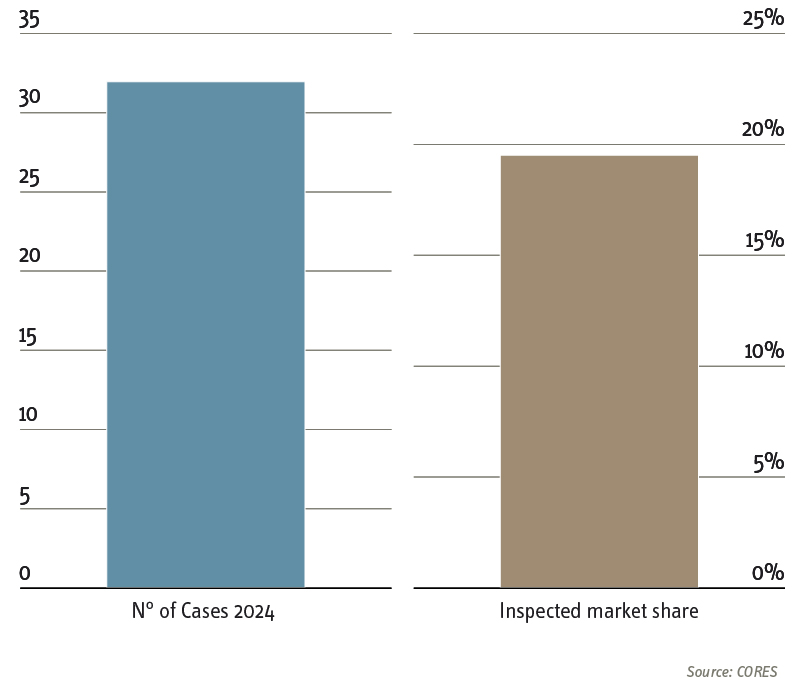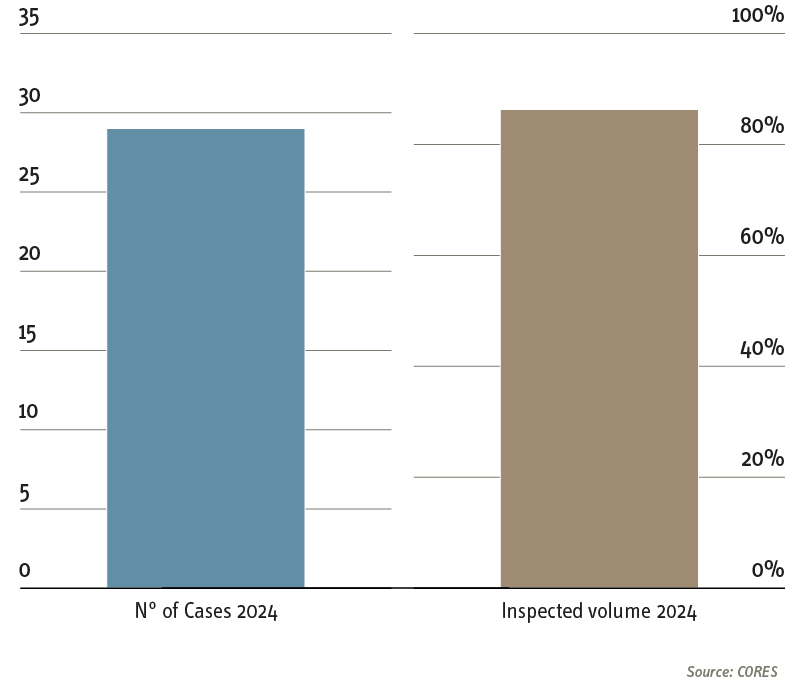Control of stocks
One of CORES’ activities consists of monitoring compliance with the obligation to maintain minimum security stocks of petroleum products, whose availability and physical accessibility should be guaranteed to allow verification at any time. The procedures that guide this activity are included in the Inspection Manual that is available to the obligated entities on infoCores.
Control of minimum security stocks
CORES' inspection area faces a constantly evolving environment characterised by the variety and the complexity of the operations. Likewise, an adaptation and progressive renewal is required, determined by the frequency increase of inspections and reduction of their execution times, in order to discriminate, in the shortest time possible, those entities who fail to comply with their obligations and/or with allegedly fraudulent activities.
Two types of checks are made:
- Documentary checks: based on the analysis of the information that the obligated entities have to send to CORES (periodic information and information requested for this purpose)
- Physical checks: inspection of physical quantities and the quality of the stocks stored
These controls may be applied in accordance with an annual plan. That plan classifies obligated entities according to risk criteria including entities' characteristics, history and how verifiable is their information. Likewise, noncompliance may trigger these controls.
Noncompliance includes the following:
- Noncompliance in the maintenance of minimum security stocks
- Noncompliance in the payment of the monthly CORES fee
- Noncompliance in the submission of mandatory information
An investigation is opened upon detection of any noncompliance. If the offence is confirmed, the information is forwarded to the competent administrative authority. These incidents of noncompliance are considered serious offences under Law 34/1998.
Control of strategic stocks
CORES checks the quantity and quality of the strategic stocks (reserves held by CORES) through regular inspections at the storage facilities where they are located. The checks are made on both crude oil and petroleum products. In the case of gasoline, additional analyses are carried out due to its particularities, making it possible to predict this product’s aging.
In 2024, a total of 38 files related to minimum stocks were instructed, which represented 19.2% of the total obligation
CORES carried out 29 files regarding Strategic Reserves in 2024, enabling the supervision of 86% of the total reserves










